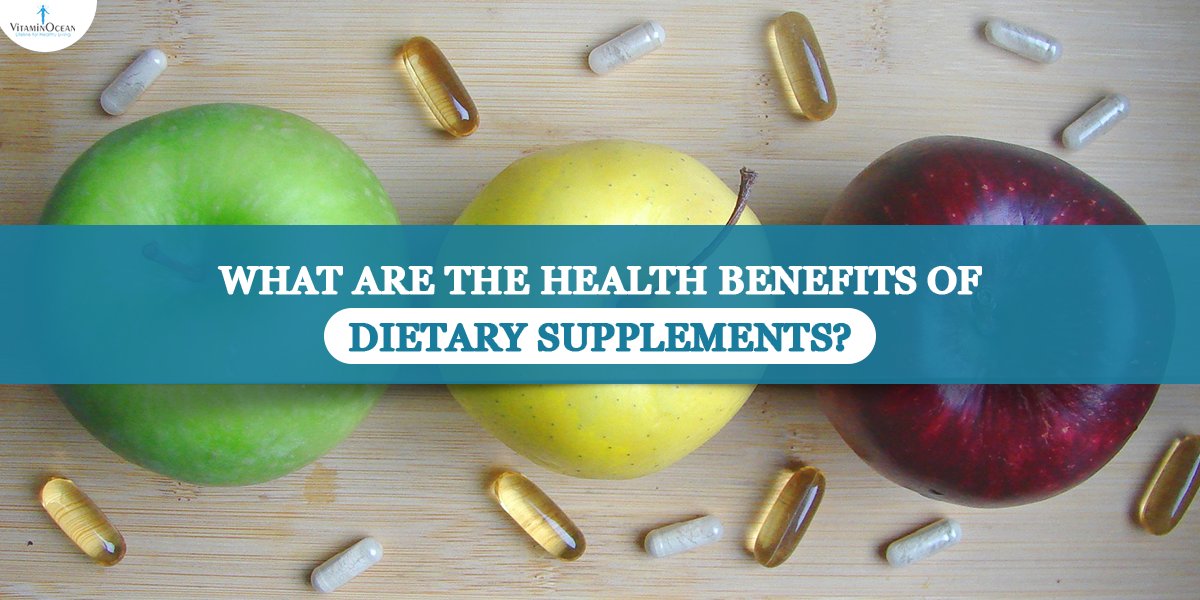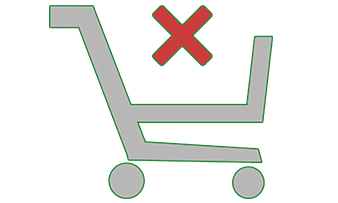What Are The Health Benefits Of Dietary Supplements?
What Is A Dietary Supplement?

A dietary supplement is a product that contains dietary ingredient/ingredients to add further nutritional value to the diet. It could be one of the following or combination of below:
- a vitamin
- a mineral
- an herb or other botanical
- an amino acid
- a dietary substance for use by people to supplement the diet by increasing the total dietary intake
- a concentrate, metabolite, constituent, or extract
A Dietary Supplement may be found in tablet, pill, capsule, liquid, powder, etc. Different dietary supplements have different properties – some add adequate dietary nutrients to your regular diet while some help reduce the diseases. The combination of both could be beneficial. There are 5000+ dietary supplements available and more than half the population of United States consume dietary supplements containing multivitamins.

According to NIH, dietary supplements do not treat any disease but it helps reduces its effects and it boosts the health once patient is treated.
Why One Should Take Dietary Supplements?
Eating nutritional fruits and veggies, exposing yourself to sunlight in the morning, getting plenty of sleep and workout is not the solution to healthy body. Adding dietary supplements to the diet is necessary no matter how healthy your lifestyle may be. This is because…
- Nutrients are lost in soil while farming the food. Modern techniques and tools of farming deplete the nutrients present in the soil. Agriculture relies on the soil for absorption of nutrients and thus, when this process is interrupted by foreign particles or techniques, plants does not gain any essential nutrients. Thus, you will lack the nutrients that you were supposed to get from eating plants.
- Once you age, your ability to absorb actually decreases and you cannot help it. No matter how healthy schedule and lifestyle you have, once you age, your body has difficulty in absorbing the nutrients. The growing children need multivitamin, so does elderly people. The intake of multivitamin supports healthy tissues, bone formation and balances the caloric problem. The medication also affects the nutrition absorption and thus, it is necessary for aged people to take dietary supplements.
- Interfering the harvesting process, shipping process, long-term storage, addition of preservatives, etc degrades the nutrient content of food. Unless you are eating something pluck directly from the tree or plant, you may not have the nutrients that are required by the body. However, growing fruits and veggies may not be possible for everyone and thus, supplements are the best substitute. You may not realize the compounds added to the food during many of these processes, such as MSG, saccharine, colorings, and flavors will increase your body's need for nutrients to deal with these damaging synthetic derivatives. So, take care while buying food products and make habit of taking regular dosage of Multivitamins.
- The pesticides and insecticides, these days are mixed in food supply combines with chemicals present in water and environment harming elements such as degraded plastic, carbon monoxide air, lead and mercury increase our need for dietary supplements. These synergic elements form the free radicals and attack the metabolism and immune system. Thus, to keep the metabolism rate high and immune system strong, take multivitamins like vitamins, minerals and fibres.
- The exercise increases nutrients need in the body. If you are a person who is athlete or has active workout routine, then it is must for you to take multivitamins. You will need the vast amount of oxygen and energy as both are consumed while working out. Also, a person needs to eat healthy after work-out and that needs may not be fulfilled by the food alone. Hence, multivitamins.
Are There Any Side Effects Of Dietary Supplements?
One should look for all natural brands for dietary supplements, which are of good quality and genuinely helpful.
What Are The Important Sources And Dosages Of Dietary Elements?
- Calcium: Milk, yogurt, sardines, tofu,fortified orange juice – 1200mgs
- Folic acid: Fortified cereal, spinach,lentils, beef liver - 400 mcg
- Iron: Oysters, chicken liver, turkey - 8 mg
- Omega-3: Salmon, sardines, flaxseed
- Fatty acids: walnuts, soybeans
- Vitamin A: Sweet potato, spinach, carrots,cantaloupe, tomatoes - - 700 mcg RAE*
- Vitamin B6: Chickpeas, salmon,chicken breast - 1.5 mg
- Vitamin B12: Clams, beef liver, trout,fortified breakfast cereals - 2.4 mcg
- Vitamin D: Salmon, tuna, yogurt,fortified milk - 600–800 IU
- Vitamin E: Wheat germ oil, almonds,sunflower seeds, peanut butter - 15 mg

These are the sources from which you could get the required nutrients in the particular amount. You must not take the nutrients more than the mentioned above for the perfect results. Ask your doctor whether you need to look beyond your diet to make up for what you're missing, but don't take more than the recommended daily intake for that nutrient.
Also Read: Top 5 Natural Supplements to Boost Energy
This article is to educate the people about necessities of multivitamin at every age – young or older. So, take the dietary supplements are your body needs because no one knows your body better than you. Be healthy, stay healthy.









































